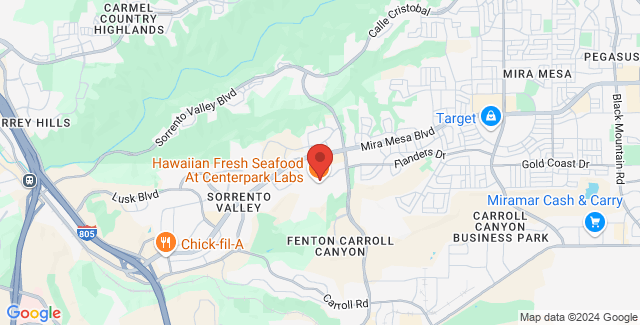The Increasing Number of Invokana® Cases
A number of lawsuits have been filed in response to adverse health complications associated with Invokana®, a medication prescribed to help patients with type 2 diabetes control their blood sugar levels. Plaintiffs in Invokana® cases are alleging negligence, failure to warn, and other claims against Janssen Pharmaceuticals, the manufacturer of Invokana® and Invokamet®. Both drugs are sodium-glucose cotransporter-2 (SGLT2) inhibitors, a class of medication designed to help diabetic patients manage their glucose levels.

Serious complications connected to both drugs include diabetic ketoacidosis, kidney failure, severe urinary tract infections, strokes, and cardiovascular events, with many cases of extended hospitalization and permanent impairment. If you have been prescribed Invokana®, Invokamet®, or another SGLT2 inhibitor and experienced a serious complication, you may be eligible for legal compensation. You can learn about your legal options by conferring with a qualified pharmaceutical attorney. To schedule a complimentary consultation, please contact our legal team today.
About Invokana®
It is important for type 2 diabetics to maintain appropriate blood sugar levels, and many drugs have been introduced to help patients achieve this goal. Maintaining glucose levels within a normal range, along with proper diet and exercise, can prevent long-term complications of the disease.
Among SGLT2 inhibitor medications, Invokana® and Invokamet® have been associated with the highest number of reported complications.
Canagliflozin, the active ingredient in Invokana®, works by directing the kidneys to remove sugar from the bloodstream. Invokamet® combines canagliflozin with another common diabetes drug, metformin, and is prescribed for patients whose glucose is not well controlled with canagliflozin alone.
Among SGLT2 inhibitor medications, Invokana® and Invokamet® have been associated with the highest number of reported complications. The most frequently reported serious complications tied to these drugs are kidney failure and diabetic ketoacidosis. A patient who suffers renal failure may require ongoing dialysis or a kidney transplant, and the condition can even be deadly. Ketoacidosis, which involves a toxic buildup of acids in the bloodstream, can also be fatal if not treated in a timely manner. Other complications reported by Invokana® patients and doctors include cardiovascular events, strokes, and bone fractures.
Invokana® Litigation
Lawsuits arising from Invokana® and Invokamet® plaintiffs seek to hold Janssen Pharmaceuticals, a Johnson and Johnson subsidiary, strictly liable for designing and manufacturing defective drugs. Court-filed civil complaints bring a number of charges against the company, including:
- Failure to warn of risks
- Negligence
- Misrepresenting the drug's risk and benefits
- Breach of express and implied warranty
- Fraud and fraudulent concealment
Plaintiffs assert that if they and their doctors had been properly warned about the dangers of taking these medications, they would have likely pursued an alternative therapeutic option. Additionally, if healthcare providers had been appropriately warned, they would have monitored their patients more closely to identify and prevent the development of dangerous side effects.

If you have been injured by a defective drug, Speak with an Attorney
Although Invokana® is specifically designed for type 2 diabetics, many lawsuits allege that the drug has been marketed off-label for type 1 diabetic patients, weight loss, and improving blood pressure. Statements prominently displayed on the drugs’ websites indicate the treatment “may help you lose weight – on average three percent,” and “you may see lower systolic blood pressure.” Additional information on the Invokana® site touts “superior reductions in body weight.”
Sample Invokana® Cases
The first lawsuits alleging adverse Invokana® complications were filed in Canada. In September 2015, a woman taking the drug to treat her type 2 diabetes filed a case that has turned into a class-action lawsuit in Ontario Superior Court. The initial plaintiff had taken the drug for about eight months when she heard a news report about Invokana® complications. She immediately made an appointment with her doctor who diagnosed her with early-stage renal failure.
A Kentucky woman was hospitalized for kidney failure after taking Invokana® for three and a half months.
Other plaintiffs joining the class action include a woman claiming damages from ketoacidosis and kidney failure, which required extended hospitalization. Dozens of Canadian claimants are now seeking over $1 billion in damages.
In the United States, the earliest lawsuits were also filed in the fall of 2015. In October, an Illinois man filed a suit claiming that he had developed diabetic ketoacidosis after being prescribed Invokana® beginning in December 2014. His civil complaint states that he has endured severe and permanent physical and emotional injuries.
An Alabama woman also developed ketoacidosis after taking Invokana®, and filed a lawsuit in December 2015. Her claim includes allegations that Janssen promoted the drug for the off-label treatment of type 1 diabetes and hypertension, though it was not approved by the U.S. Food and Drug Administration (FDA) for these uses. Also in December 2015, a lawsuit was filed in Philadelphia by a man who was hospitalized with diabetic ketoacidosis after taking Invokana® for three months.
February 2016 saw the filing of several additional Invokana® claims. A Kentucky woman was hospitalized for kidney failure after taking Invokana® for three and a half months. A California woman also suffered acute kidney failure and kidney injury. Her civil complaint criticizes the Invokana® warning labels, which do not warn of kidney failure, but simply describe “kidney problems” as a possible side effect. Also, a Louisiana man filed suit, claiming diabetic ketoacidosis and severe kidney damage.
Multidistrict Litigation Anticipated
With the rapidly increasing number of Invokana® lawsuits, it is likely that the majority of them will be consolidated under multidistrict litigation (MDL). The individual cases would be transferred under the jurisdiction of an overseeing judge, but each plaintiff would retain their own legal counsel.
MDL is an increasingly common way to handle product liability cases, where there are often multiple plaintiffs with similar claims against a single defendant. MDL is efficient for coordinating discovery and answering common questions, but plaintiffs are still able to receive a unique settlement based on their injuries.
Lawsuit Discovery: A Record of Injuries
A watchdog organization has been keeping track of FDA complication reports related to Invokana® and other SGLT2 inhibitors. In January 2016, the Institute for Safe Medication Practices (ISMP) published a Safety Alert that counted 5,484 adverse Invokana® events reported to the FDA, including kidney failure or impairment, kidney stones, UTI’s, and abnormal weight loss. They also noted 168 reports of metabolic acidosis reported in 2015.
Of course, not all complication incidents are filed with the FDA, and it is likely that many other adverse events have occurred. As more people learn of the connection between Invokana® and their unexpected health issues, the number of reported events and lawsuits are expected to greatly increase.
Invokana® is one of several type 2 diabetes medications that have offered effective treatment, but also contributed to the development of additional health problems in patients. There have already been multi-million dollar settlements of numerous lawsuits involving diabetes drugs such as Actos® and Avandia®. Thousands of plaintiffs are now submitting claims for complications stemming from Januvia®, Janumet ®, Byetta®, Bydureon®, Onglyza®, and Kombiglyze XR®.
Contact a Product Liability Attorney
If you think you may have a claim related to Invokana®, Invokamet® or another SGLT2 inhibitor, it is imperative that you seek legal counsel. Our experienced attorneys can help you, explain your legal options, and offer representation in many cases. It is important to pursue your case before the statute of limitations deadline has passed, a time limit that varies state by state. Please contact our legal team today to schedule a complimentary case evaluation.




